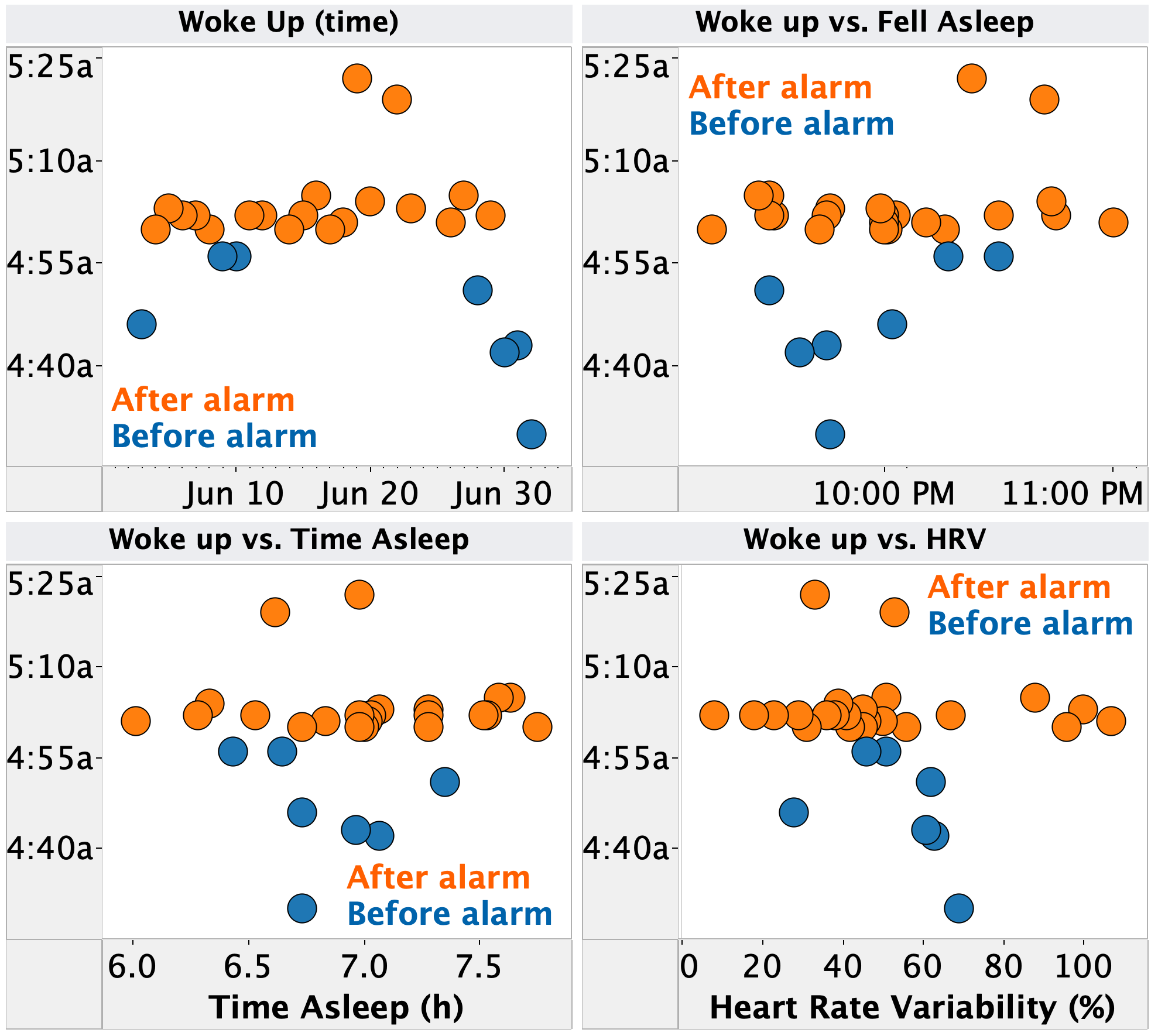Get new posts by email or rss feed
Summary: I’m trying to sleep longer, but am waking up too early in the morning. I’d like to test some interventions to sleep longer (including melatonin) and am looking for advice.
Over the past 5 weeks, I’ve been making an effort to get more sleep. I’ve been able to hit an average time asleep of ~7h and, qualitatively, I’ve been feeling a lot less tired and have been able to concentrate better in the afternoons.
I’d like to see if sleeping even longer will result in further improvement. However, over the last week I’ve noticed that I’ve been waking up earlier and earlier (before my morning alarm). I stay in bed (eyes closed) until the alarm, but can’t go back to sleep.
Based on my data so far, there’s no clear correlation with time I fell asleep or total time asleep. Might be a correlation with heart rate variability, but I need more data to be sure.
I’d like to test some interventions to sleep longer. I already exercise in the evenings and for as long as I’m willing to do (~30 min. high intensity, 5-10 min. stretching), my last meal is 4h before going to bed, and my CGM does not show a consistent rise in blood sugar before waking up.
The only thought I had was to try melatonin. It’s typically used to control when you go to sleep, but it last long enough in the bloodstream that it might impact time asleep as well.
Plan:
- Self-blinded study using melatonin placed inside placebo capsules
- Concentrations: 0, 0.3, 3 mg (random assignment)
- Duration: 4 weeks
Questions:
- Anyone else have the same problem? What has worked for you to sleep later?
- Any other suggestions for interventions to try?
- Any comments or critiques on the melatonin experimental design?
- Is random assignment by day sufficient or do I need to block by a longer time period, use washout days, etc.?
– QD

I came across your post while searching for something else. I've studied sleep experiments a bit (but not clinical), and yours seemed like an interesting case to think about.
Here's some thoughts I had, which should not be treated as medical advice as I'm not a physician or sleep clinician, but just my thoughts as an enthusiast:
– overall you seem to have a pretty consistent bed time (great!) and hours slept are stable. I don't know how old you are, but 7 hours on average with a consistent sleep schedule is considered fine for a post-college adult
– with melatonin, I would track awakenings and sleep onset latency. my personal guess is there won't be much of an effect, because you're falling asleep consistently around the same time anyways. and you didn't mention waking up in the middle of the night as something you noticed. your dosages seem reasonable to me
– randomizing per day is probably okay for what you're measuring, but watch out for any effects from minor sleep decifit that might affect your day-to-day variation. do you nap? I'm guessing no, but I would track that as a covariate if you do. if you have enough days to experiment with, I would randomize by 4-day blocks, but that greatly extends the experiment length. here's a paper I was involved in if you're looking for other ideas about experimental setup jeffhuang.com/papers/SleepBandits_CHI20.pdf
– for practical advice, you might consider cutting screen use at 8pm, give yourself some winddown time. totally guessing here, but maybe the earlier wakeups are from some sort of anxiety or nervousness. like is work really that makes you feel like you need to be up and about, or anything in your personal life that lingers in your mind?